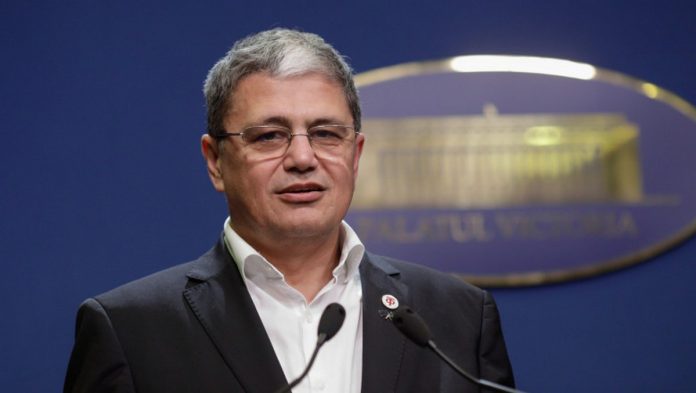Romania must meet very clear convergence criteria for joining the euro currency, and one of these is related to the convergence regarding the sustainability of public finances, the Minister of Finance, Marcel Bolos, said on Wednesday, in the framework a press conference held at the Victoria Palace.
„There are very clear convergence criteria established by the European Commission regulation, and one of them is related to the convergence regarding the sustainability of Romania’s public finances. Here we will have to have a balanced approach, because we are also in the period in which we are developing, during the period when we are implementing the investment projects, and then I don’t think that the Bulgarian model, in which, let’s say, they met the convergence criteria provided by the European Commission regulation, with the exception of the one regarding inflation, but with an impact on investments, was the model that more appropriate. I said – and I repeat – the years 2025, 2026, 2027 are very difficult years for Romania, with an investment budget that goes up to 8% of the GDP”, stated Bolos.
He believes that a balance must be found regarding the implementation of investments and supporting the business milieu, in order to improve Romania’s competitive position on the European market.
„Here we will have to find the necessary balance, on the one hand to implement our investments, on the other hand to support the business environment with everything we can in order to improve Romania’s competitive position on the European market. This is an extreme country objective important: that we do not in any way have measures that are at the disadvantage of the business milieu”, emphasized Bolos.
Also, the minister stated that it is not easy to fight tax evasion or to restructure the public spending system, but such projects can benefit Romania.
„We started the digitization process, it was a difficult stage for the business milieu, because it is about getting used to the models that we have implemented. I really apologize for this discomfort that we have created, but we have to understand with all of us that it is the way in which together, in partnership with the business area, we can progress and have a modern and sustainable fiscal system. It is an objective of the country of Romania that we must pay close attention to, because it is not easy to do you do fiscal-budgetary consolidation. It is not easy to implement digitization projects, it is not easy to fight tax evasion. It is not easy to restructure the public expenditure system. All this requires understanding from those who are addressed by the measures and (… ) and such projects can benefit Romania”, he added.
Asked by journalists what is the year in which they believe that Romania will join the euro currency, Bolos answered: „We must have patience to implement our investments in these difficult years, 2025, 2026, 2027, and then the fiscal-budgetary adjustment becomes easier”.
„However, I hope that we all have the necessary wisdom and patience so that the digitization projects that we have started, the projects that are aimed at combating tax evasion, will lead us to the restructuring of the public spending system, to lead us to this great objective that we have, so that the fiscal-budgetary adjustment is not an impediment for Romania not to join the euro zone. This is a matter of cooperation between all actors in the economic and social environment, so that in the end we obtain a fiscal-budgetary adjustment as quickly as possible, but reasonable and without sacrificing investments, which are the cornerstone for Romania’s long-term development”, concluded the minister of finance.
On June 26, the European Commission announced that Romania does not meet the conditions for the adoption of the euro currency, following the evaluation of legal compatibility and meeting the convergence criteria and taking into account additional relevant factors for convergence and economic integration.
The conclusion was presented in the 2024 Convergence Report, which evaluates the progress made by Bulgaria, the Czech Republic, Hungary, Poland, Romania and Sweden towards joining the euro zone. These are the six member states outside the euro zone that have legally committed to adopt the euro currency.
The EC report indicates, in particular, that the legislation in Romania is not fully compatible with the compliance obligation provided for in Article 131 of the Treaty on the Functioning of the European Union (TFEU). Thus, Romania does not meet the criterion of price stability, the one concerning public finances, it does not meet the criterion of the exchange rate and the criterion of convergence of long-term interest rates.
AGERPRES




